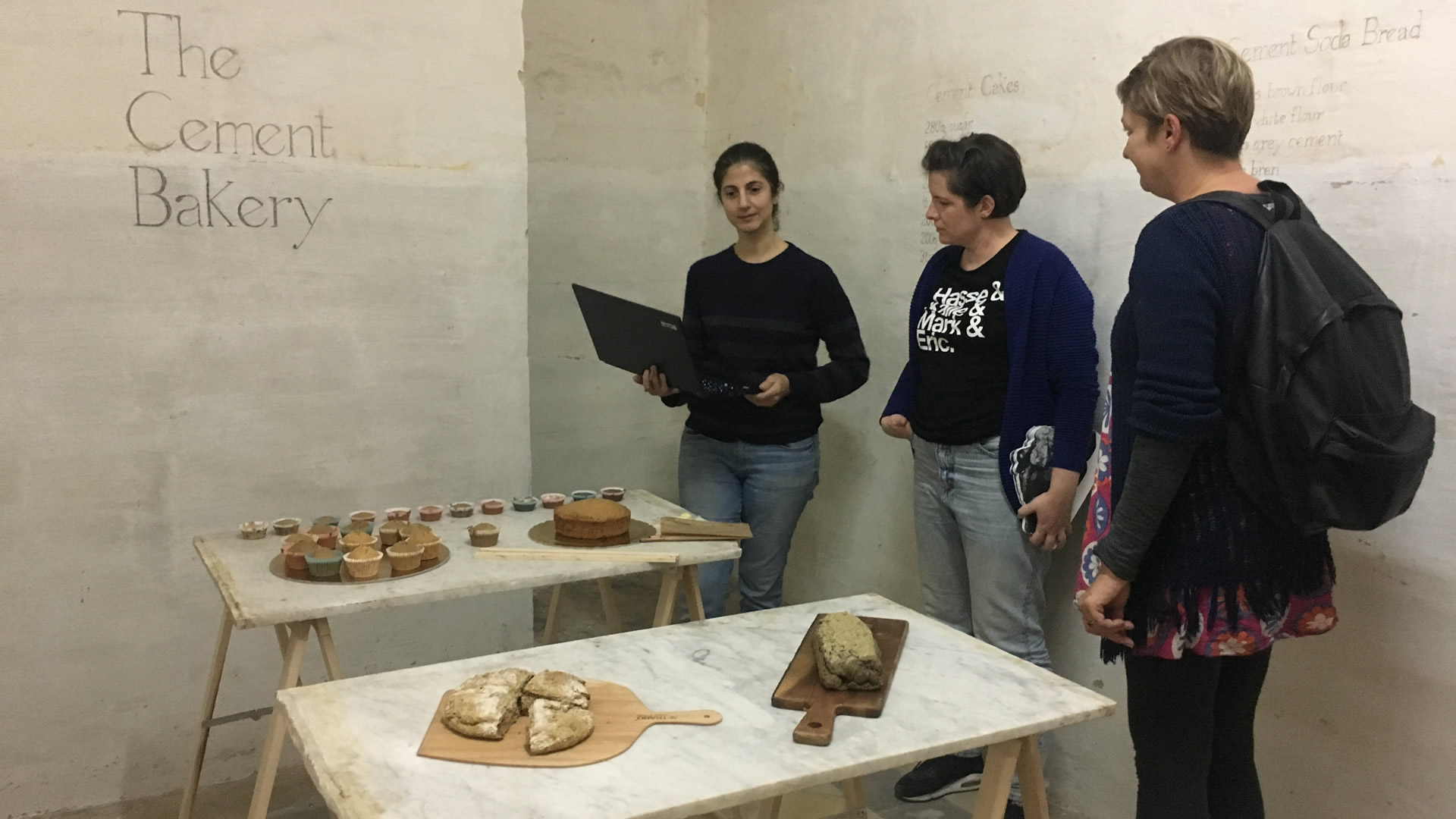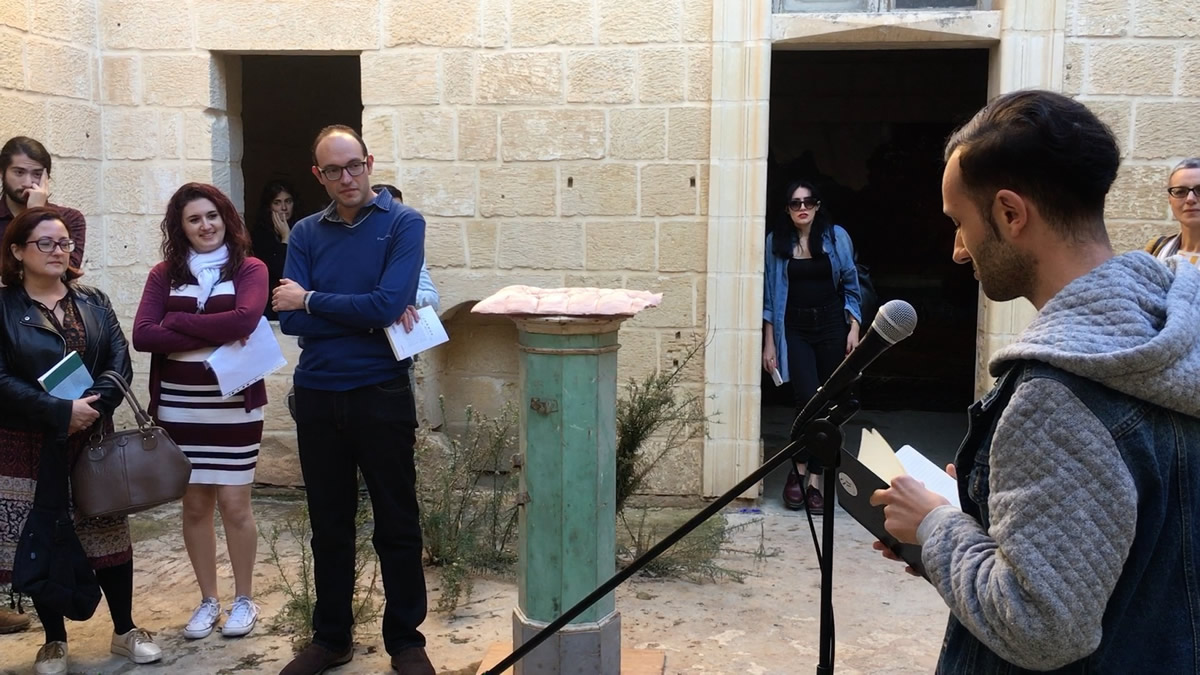The Wandering Tower
- Thomas
- News
- 0 Comments

Universal Motives of Unlimited Mobility
Mahalla Festival 2020
The Istanbul based association DIYALOG wanted to organizine the Mahalla festival in Arbil (Iraq) in November 2020 with screenings, performances, talks, round tables and concerts. The festival will bring together artists, academics, institutions and stakeholders from different fields and different backgrounds in Europe and beyond to support an intercultural understanding in times of increased mobility and search for identity.
Under the critical circumstances in December 2019 and in the light of the objectives of the destabilization in Iraq we canceled the Mahalla festival scheduled for 2020 in Erbil.
The second Mahalla Festival took place 2018 in Malta after the inauguration of the festival in Istanbul in the frame of the parallel events of the Istanbul Art Biennial 2017. Under the title “Generating New Narratives” the festival in Malta displayed 2018 art works, performances, installations, screenings, readings and talks were reflecting aspects of borders, armed conflicts and migration, minorities, hospitality and hostility, urban structures, inclusion and intercultural communication. After a more theoretical oriented Festival in Istanbul in 2017 the Mahalla Malta Festival was able to experiment with different formats of exhibitions, literature-events, film-screenings and performance-events.

Watch Tower in Malta
The title of the upcoming festival, The Wandering Tower – Universal Motives of Unlimited Mobility, is dedicated to the traveling musician/storyteller, as the West African Griot, the Turkish Aşık or the European Troubadour, to name just a few examples.
German musician Lucian Plessner found unknown short stories by the Ukrainian composer Sergei Prokofjev (1891-1953) in an old Sowjet magazine, when he was doing research in the apartment of Sergei Eisenstein a couple of years ago. Prokofjev’s symphonic fairytale “Peter and the Wolf”, composed in 1936, has been world-famous so far. Like many artists, however, he had experimented in various fields. Plessner translated the short stories into German and published the works in 2012 as an anthology. “The wandering tower” is the title story:
The Eiffel Tower departs from its location in Paris and marches through France and Switzerland leaving a path of destruction. His destination is ancient Babylon (today Iraq) due to the spirit of an Assyriologist, who possessed the tower. When the Assyriologist recognizes the danger of unveiling the last secrets of the tower of Babylon, his main field of research, his spirit leaves the possessed landmark of Paris. The Eiffel tower flies back to its starting point at the end of the story.


Peter Briegel, 1653, The Tower of Babylon Kurtuluş Göksal a.o., 2018, A Tower For Mosul
The history of the reception of Sergej Prokojevs’ stories is very similar to the goals of the Mahalla Festival. A musician had moved out to find something completely different. By accidentally leafing through an old magazine, he was able to provide world literature with a unique treasure trove of fantastic stories.
The search for chance, encounter, enchanted places, motives and variations, interdisciplinarity and multimedia will be the guidelines of next year’s festival.
The Wandering Tower encourages systematically to remove limitations and to let imaginative, dystopian and utopian designs flow into one another beyond borders.
Next year, we are focusing on the universal tradition of storytelling. In Europe, the troubadours and jesters were a traveling communities of poets, storytellers, singers, dancers, and jugglers who performed traditions and stories in many variations.

The Maltese “għana”
In Malta there is the tradition of għana and other forms of storytelling. The contemporary poetry is a rich field and is presented mobile and partly multilingual in poetry slams. In particular, għana was practiced also by the women singing on roof tops or in old communal wash houses.
Today on the other hand the Senegalese musician Lamine, who sings and plays the Kora at the Triton Fountain in Valletta at weekends, comes from a family of Griots. West Africa’s Griots or Jali are often referred to as hereditary praise-singers, yet they are so much more. The root meaning of Jali is blood, and they circulated across African societies as transmitters of history, advice and knowledge. They were reporter, storyteller, poet, composer and musician. Their skill in communicating and in mediation made them “the needle that sews“. In the 21 century the Griots event reached European shores and enriched the local cultures with their century old storytelling.
In Iran and Iraq musicians have a tradition as storytellers and persecution of their art. In an adaption of this motive, Bahman Gobadi narrates the conditions of war around a group of musicians. His Film “Half Moon” (2007) tells the story of Mamo, an old Kurdish musician in the twilight of his life, who plans to perform one final concert in Iraqi Kurdistan. The village’s elderly warn him that as the moon becomes full, something awful would happen to him and urge him not to proceed with his plan. After several months of trying to overcome the red-tape, he begins a long and dangerous journey along with his sons. Along the way, the group picks up female singer Hesho who resides in a village of 1,334 exiled women singers. This adds to the complications of the trip as Hesho did not have authorization to go into Iraq. Despite all these obstacles, Mamo is determined to continue with his journey across the border.

Half Moon by Bahman Ghobadi, 2007
Find the English translation of Sergej Prokofjevs short story “the wandering tower” on this page: http://mahalla.inenart.eu/2019/08/13/the-wandering-tower-by-sergej-prokofjev/



